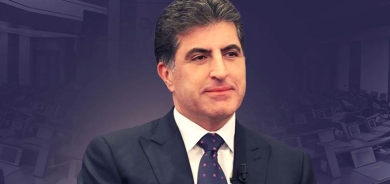Kurdistan Region President Calls First Session of New Parliament for December 2

Kurdistan Region President Nechirvan Barzani has issued a presidential decree summoning newly-elected lawmakers to convene the first session of the sixth term of the Iraqi Kurdistan Parliament on December 2.
Announcing the decree during a press conference, Kurdistan Region Presidency spokesperson Dilshad Shahab stated: “The elected candidates of the sixth term of the Iraqi Kurdistan Parliament are called to hold the first parliamentary session on December 2, 2024, at 11 a.m.”
The announcement follows the approval of the Kurdistan Region’s legislative election results by Iraq’s Independent High Electoral Commission (IHEC) on Sunday. This will mark the first parliamentary session since May 2023, when Iraq’s Federal Supreme Court dissolved the Kurdistan Parliament after overturning its decision to extend its term by an additional year.
During the session, the oldest member of the legislature will preside, and newly-elected lawmakers will be sworn in.
Election Results and Political Landscape
The October 20 election saw the Kurdistan Democratic Party (KDP) consolidate its position as the leading political force in the region, securing 39 seats. The Patriotic Union of Kurdistan (PUK), a coalition partner but political rival to the KDP, followed with 32 seats. The opposition New Generation Movement came third with 15 seats.
Smaller opposition parties, including Komal, the Kurdistan Islamic Union, Baray Gal, and Halwest, have rejected the election results, alleging voter fraud and manipulation. They have also raised concerns about the reliability of the electronic voting machines used in the process.
Looking Ahead
The session on December 2 will officially launch the sixth parliamentary term, setting the stage for the region’s legislative priorities. Political analysts expect continued challenges between ruling and opposition factions, as well as potential shifts in alliances within the ruling coalition.
The formation of the new parliament is seen as a critical step in ensuring political stability and addressing key governance issues in the Kurdistan Region.













